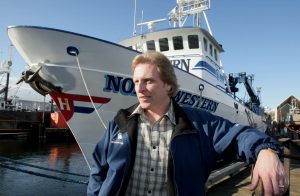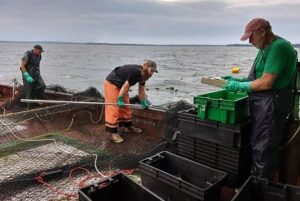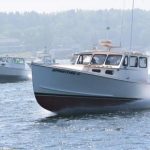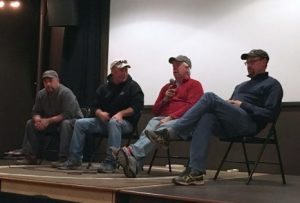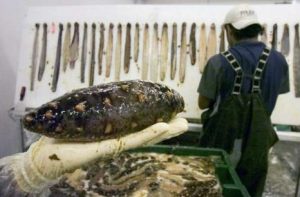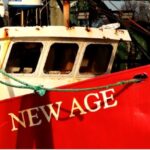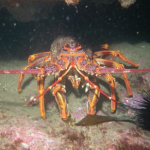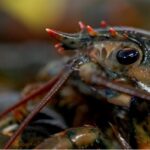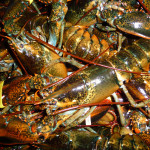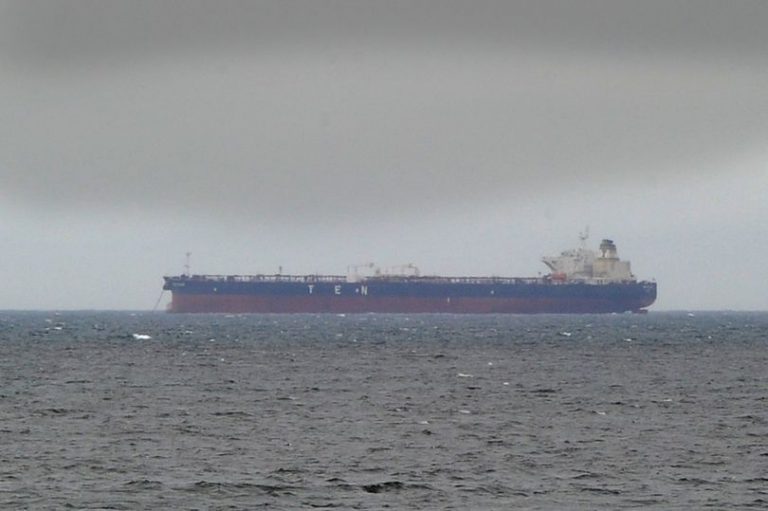Daily Archives: December 16, 2018
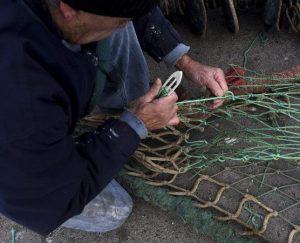
Gloucester: NOAA drops port’s rank in latest report, even as local fish landings, values rise
U.S. fish and shellfish landings increased incrementally last year in both volume and value, while Massachusetts ended the year with the second-highest value of commercial landings among the 50 states, according to an annual report on U.S. fisheries released Thursday by NOAA.,,, The report, however, reflected a reigning status quo for the port of Gloucester. America’s oldest seaport produced slight increases in volume and value of its landings, while its ranking among other U.S. commercial ports declined slightly. The volume of Gloucester landings rose 1 million pounds, or 1.5 percent, from the previous year to 64 million pounds. The value of those landings grew by $1 million, or 1.9 percent, to $53 million from $52 million in 2016. >click to read<20:44
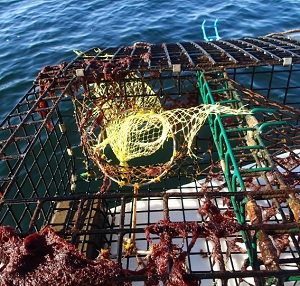
Open Season: It might be time to ‘seal’ a deal to help fishermen
According to local lobstermen, the fishing in Buzzards Bay suffers a lull in the heat of late summer but usually picks up again around Thanksgiving when the water cools. But that’s not the case this year, according to my own experience. I have a recreational lobster license, which allows me to run up to ten pots with a stipulation that the lobsters can’t be sold. I run those ten pots in the Bay from spring through December and fished them as late as mid-January last year, but I hauled them for the season on Tuesday. It stopped being fun. For November and early December, my harvest was less than half of what I caught last year during the same period. Some say that the increase in ocean temperatures, due to climate change, is chasing the lobsters North to colder waters but it’s my opinion that the populations of lobsters, like any other wildlife species, are cyclical with highs and lows. Wildlife numbers are never stagnant. >click to read<18:33
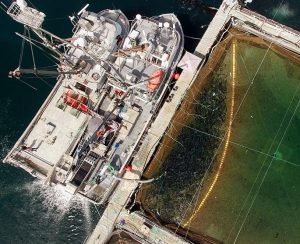
Plan to Close Fish Farms on Salmon Migration Routes a ‘Step in Right Direction’
After months of negotiation, the province and the ’Namgis, Kwikwasut’inuxw Haxwa’mis and Mamalilikulla First Nations announced an agreement to remove some fish farms in the Broughton Archipelago on northern Vancouver Island’s east coast. But both industry and government “have a long way to go to really protect wild salmon,” says Alexandra Morton, a biologist and vocal critic of the foreign-owned fish farm industry. The plan, announced Friday, also gives First Nations more control over the monitoring of fish diseases. Both Marine Harvest, a Norwegian firm, and Cermaq, a Norwegian-run subsidiary of Mitsubishi, have agreed to the plan and foresee no impact on jobs. >click to read<17:34
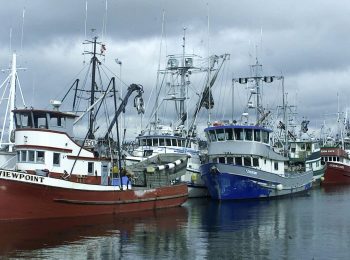
Seattle’s working waterfront: The Port of Seattle has a strategy for world-class maritime industries
Set aside the latest news about drone-delivered packages and consider the changes happening now in the ocean economy. More than 90 percent of the world’s trade travels over water, with total volume expected to triple by 2050. The global value of the ocean economy is expected to reach $3 trillion in the next three decades, with the largest gains coming in tourism. Fisheries provide an increasingly essential source of food, employment and revenue.,,, Maritime jobs offer well-paid and reliable careers and diversify the local economy. The Port of Seattle is seizing these benefits for our region. >click to read<16:57
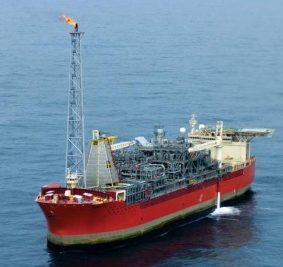
Oil spill raises new questions about fast-growing N.L. oil industry
Newfoundland and Labrador’s ambitious plans to dramatically expand the province’s lucrative offshore oil and gas industry got a nasty jolt on Nov. 16. Amid a fierce winter storm, an estimated 250,000 litres of oil spilled into the ocean from Husky Energy’s SeaRose platform, about 350 kilometres from St. John’s. There are currently four platforms producing oil off Newfoundland: Hibernia, Hebron, Terra Nova and SeaRose Expansion plans include a proposed 100 new exploration wells and over 650,000 barrels of oil per day by the year 2030. This long-term vision also includes “shortened time from proceptivity to production.” >click to read<13:53
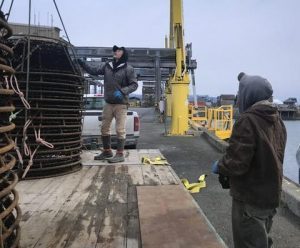
Alaska Fishermen Hauling A Bigger Catch With Gear They Get To Use For The First Time
Longtime Alaska fisherman Bill Harrington has a few choices words about killer whales. “As far as I’m concerned, they’re only thieves in tuxedos,” Harrington says. He’s retired now, but a video from a decade ago shows him pulling in his line as he curses out a pod of killer whales swarming his boat. His catch is exposed; he is not happy. A sperm whale bursts out of the water and Harrington tells them what he really thinks. He knows even just a couple of killer whales could pick his line clean. But now fishermen are taking advantage of new regulations that let them fish with a previously banned piece of gear. Longline pots >click to read<10:20

































